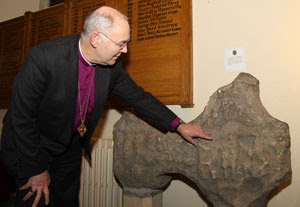Those of you who read my personal blog 'Holy Smoke' or connect with me on Facebook will know that I'm on a diet. Well it's not that sort of 'thin place' I'm talking about today, but it does tie the two blogs in rather nicely!
I describe a 'thin place’ as somewhere where the veil between heaven and earth is thin. A place heavy with the presence of God, where it is easier to pray, talk and to listen to God. When I visit such places, it’s like stepping into a warm bath. It’s as though all my worries and the heaviness of living in this world, falls off. I can relax and begin to breathe again. Often, in these places, there is little or no cell phone reception or Internet access - a blessing in itself! Suddenly I become unchained, unshackled.
 Novelist, Mary DeMuth in her memoir 'Thin Places' (Zondervan 2010) describes thin places as, '..snatches of holy ground, tucked into the corners of our world, where, if we pay very close attention, we might just catch a glimpse of eternity.....They are aha moment, beautiful, realizations, when the Son of God burst through the hazy fog of our monotony and shines on us afresh.'
Novelist, Mary DeMuth in her memoir 'Thin Places' (Zondervan 2010) describes thin places as, '..snatches of holy ground, tucked into the corners of our world, where, if we pay very close attention, we might just catch a glimpse of eternity.....They are aha moment, beautiful, realizations, when the Son of God burst through the hazy fog of our monotony and shines on us afresh.'Many of the thin places I love to visit, like Lindisfarne, have monastic roots, where there has been a daily rhythm of daily taking place across maybe sixteen centuries or more. What an awesome thought. No wonder these places are special!
What is your experience of 'thin places' and how do they affect you?













